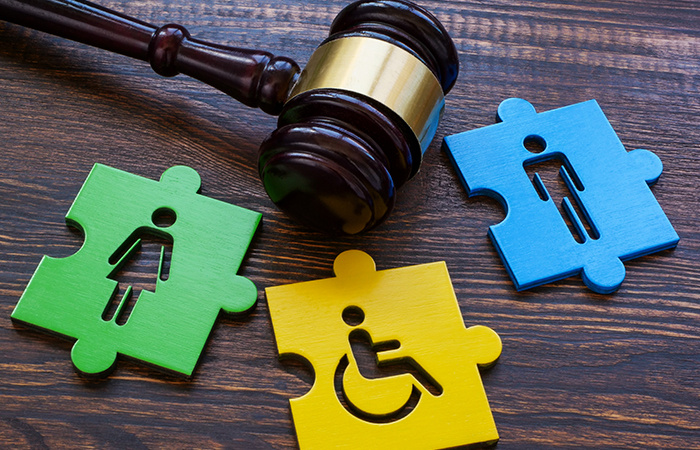Power of attorney and guardianship differ considerably in the durability of powers granted and the level of court involvement.
Navigating the transition into adulthood can be a pivotal phase for any child, but it introduces unique challenges and considerations for those with special needs. Understanding the critical decisions surrounding guardianship and power of attorney is essential for planning their future care and maintaining their rights and dignity.
It's important to recognize what turning 18 means legally. In most jurisdictions, an individual becomes an adult at 18 and gains the legal right to make decisions about their own life - from financial matters and healthcare decisions to educational and vocational choices. For children with special needs, these newfound rights can be both an opportunity and a challenge, depending on their capacity to manage them.
Two key options to consider in managing this transition are guardianship and power of attorney. While both can be valuable in helping you make decisions on behalf of your child, they differ in terms of the level of control they provide and the circumstances under which they are most appropriate.
Guardianship: A Comprehensive Approach
Guardianship is a legal process in which a court appoints an individual (the guardian) to make decisions on behalf of another person (the ward) who cannot make those decisions themselves. In the case of a child with special needs, a parent or other family member may seek guardianship to maintain decision-making authority over their child's personal and financial affairs after they become an adult.
There are two main types of guardianship:
- Guardianship of the person - Authority to make decisions about the ward's care, including healthcare, living arrangements, and education.
- Guardianship of the estate - Authority to manage the ward's financial assets and make financial decisions on their behalf.
In some cases, a court may appoint a guardian of both the person and the estate, granting them comprehensive decision-making authority.
The guardianship process typically involves filing a petition with the court and undergoing a hearing to determine the ward's capacity and the guardian's suitability. It typically also involves ongoing court supervision to ensure the guardian acts in the ward's best interests.
Power of Attorney: Flexibility and Respect for Autonomy
Power of attorney is a legal document that grants one person or an entity the authority to act on behalf of another. It's beneficial in cases where an individual with special needs can make some decisions but might require assistance in other areas, such as healthcare or finances.
There are two main types of power of attorney relevant to those with special needs:
- General - Authority to make decisions on behalf of the principal in various areas.
- Limited - Authority to make decisions only in specific, designated areas.
One key difference between power of attorney and guardianship is that the individual can grant power of attorney if they have the legal capacity to do so. This distinction means that if your adult child with special needs can understand the nature and consequences of granting power of attorney, they can grant you this authority without the need for court involvement.
Choosing Between Guardianship and Power of Attorney
When deciding between guardianship and power of attorney for your child with special needs, consider the following factors:
- Your child's level of capacity - If your child cannot make decisions for themselves or understand the nature and consequences of granting power of attorney, guardianship may be the most appropriate option.
- The areas in which you need decision-making authority—If you need authority only in specific areas, such as healthcare or finances, a limited power of attorney may be sufficient. Guardianship or a general power of attorney may be more appropriate if you need broad decision-making authority.
- The level of court involvement - Guardianship involves a higher level of court involvement and ongoing supervision than power of attorney. Power of attorney may be a better option if you prefer to minimize court involvement.
- The duration of authority - Guardianship typically remains in place until the court determines that it is no longer necessary or the ward passes away. Power of attorney can be revoked by the principal at any time, as long as they have the capacity to do so.
It's important to note that guardianship and power of attorney are not mutually exclusive. In some cases, it may be appropriate to have both in place to ensure comprehensive decision-making authority.
Working with a Special Needs Attorney
Given the complexity of the legal issues surrounding guardianship and power of attorney, working with an attorney specializing in special needs planning is essential. A qualified special needs attorney can help you:
- Assess your child's capacity and determine the most appropriate legal tools for your situation.
- Navigate the guardianship or power of attorney process.
- Draft legally sound documents that clearly outline the scope of your authority.
- Understand your ongoing responsibilities and obligations as a guardian or agent.
By working with an experienced professional, you can ensure that you have the legal authority to make decisions for your child with special needs and protect their well-being into adulthood.
The Takeaway
As your child with special needs approaches adulthood, it's crucial to consider the legal tools available to ensure they continue receiving the support and protection they need. Whether opting for guardianship or power of attorney, balancing protection with respect for their independence and personal wishes is crucial.
Guardianship and power of attorney are two key options that can grant you decision-making authority over your child's personal and financial affairs. By understanding the differences between these tools and considering the individual's unique needs and preferences, parents can ensure they provide the best possible support for their child's future.

